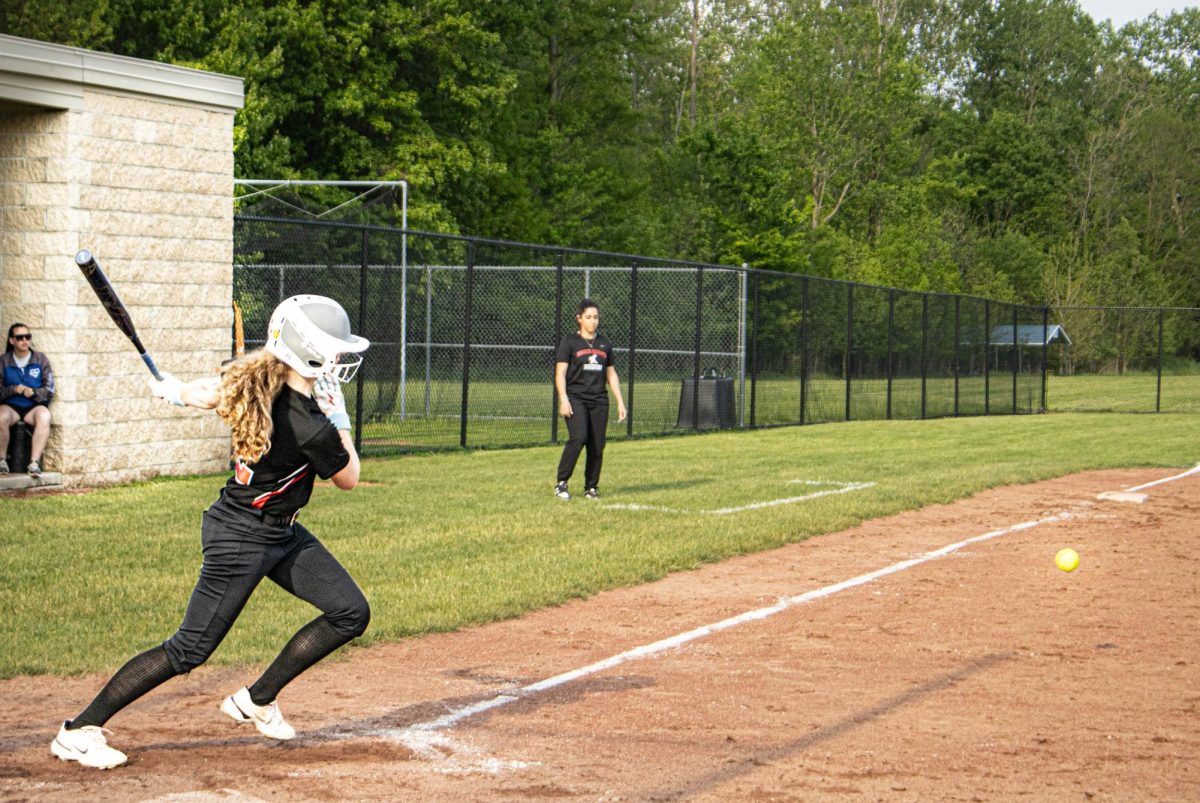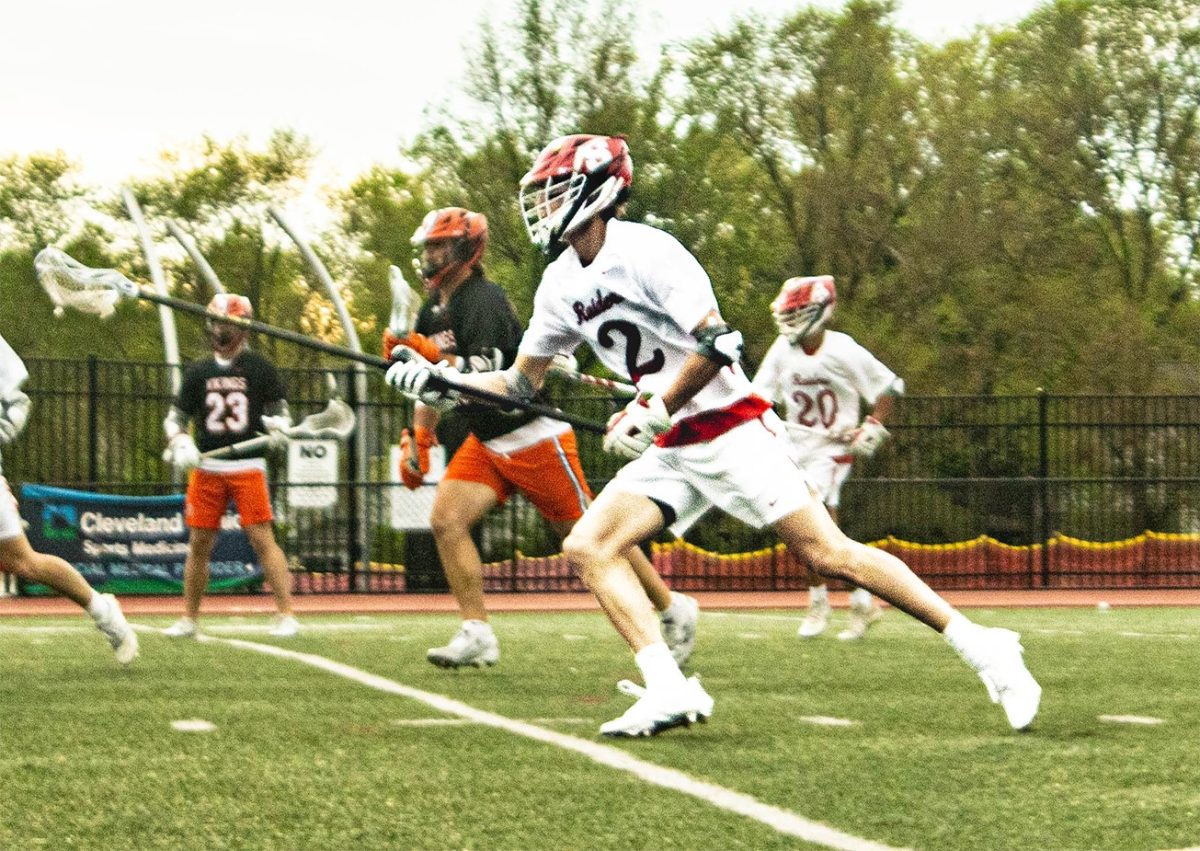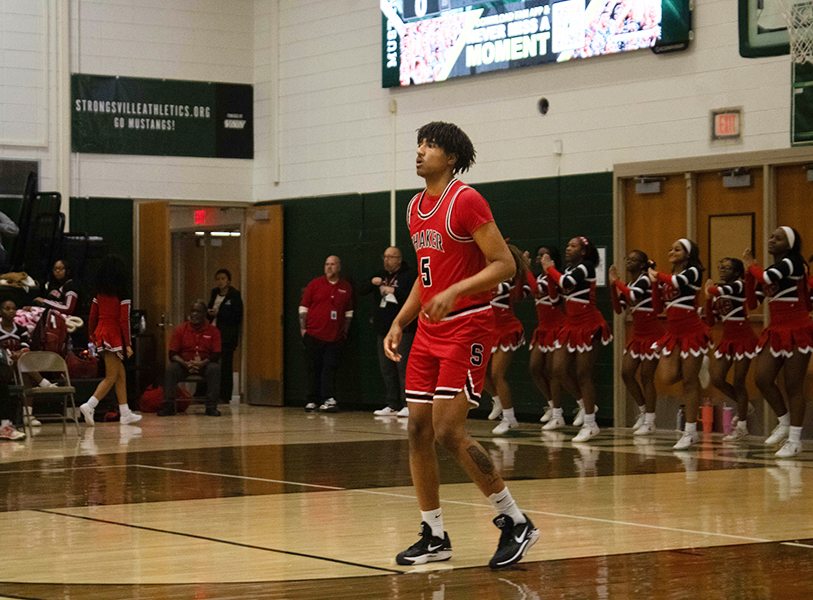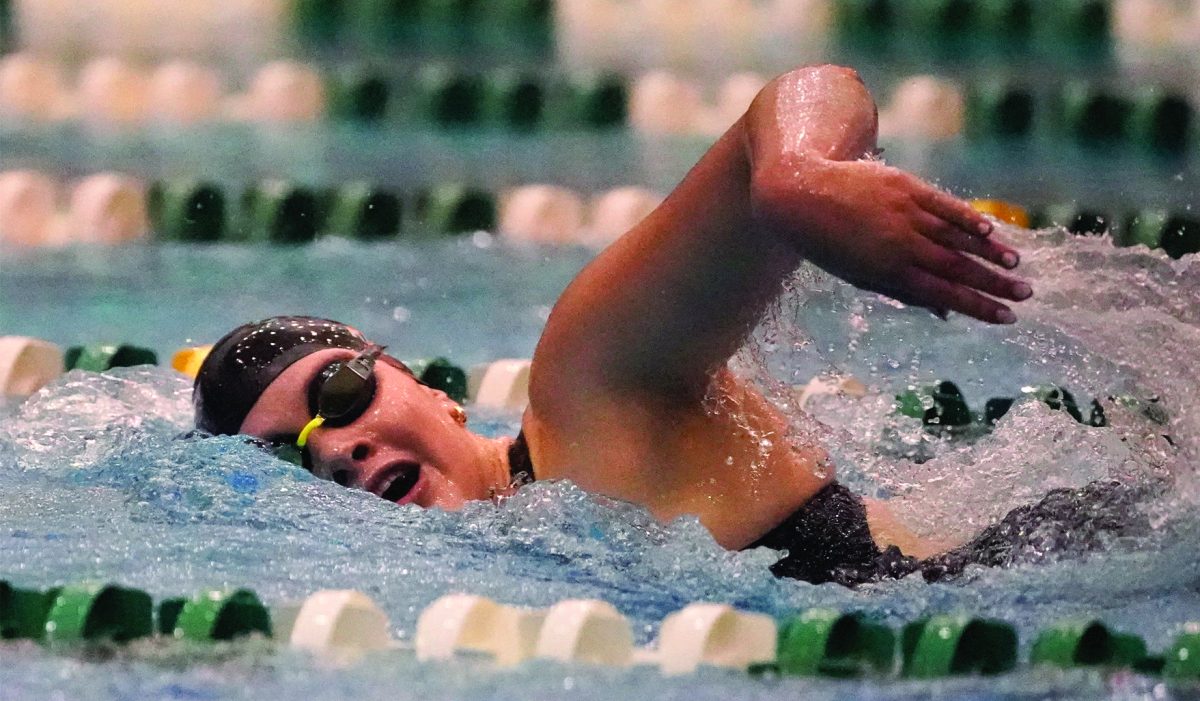Coaches and athletes are so determined to improve their play that the Ohio High School Athletic Association forbids them to practice for a month after every season.
Talking to some Shaker athletes quickly reveals why that rule exists.
Junior wrestler Micah Shorts said his schedule comprises weight lifting during spring, camps during summer, more weight lifting and open mats during fall, and the winter wrestling season.
By participating in recreational leagues when available and partaking in personal, unorganized practice, students prepare for seasons that may be months away.
Coaches are not allowed to begin pre-season training until a designated date set by the OHSAA. According to OHSAA regulations, a coach of any sport “is prohibited from athletic or athletic-related contact with squad members . . . in the same sport for the period of time starting with the first day after the school’s last interscholastic contest and ending 28 days later.”
Sophomore Cameron Campbell, a basketball and baseball player, agrees with the rule. “Coaches would be selfish if they ran into other coaches’ time if the player played a different sport,” he said.
However, this rule has no effect on students who are willing to dedicate their own time to developing their skills for a particular sport. Students, not coaches, organize practices before the official season to begin training and conditioning.
Freshman Sarah Jacob, a field hockey and lacrosse player, said that pre-season training for both of her sports is intense. “Our training usually consisted of weight training, running, stick skills and practice games,” she said.
Although intense, the training is beneficial for the athletes. “I think [preseason practice] helped our team a lot,” said freshman football and lacrosse player Clay Brady. “The earlier you get in and start working, the more down pat you have the skills in the game.”
Softball coach Jessica O’Brien agrees. “If you aren’t training beforehand the coaches have the double job of getting your body in shape and getting you ready for your first game,” she said.
Practice is especially important in light of Shaker’s move to the more competitive Northeast Ohio Conference. “Those teams are always preparing and always practicing,” O’Brien said.
Campbell believes preseason practices really help. “They are very beneficial during the season because the drills and preparations will still be in our heads during games,” Campbell said. “They also help build team chemistry and help players’ attitudes toward the game.”
Jacob shares a similar attitude. “Team members have to know each other, and without these pre-season practices, we wouldn’t have that connection and overall we would not be successful,” she said.
Shorts agrees, but also acknowledged that they probably practice too much. “Practice makes the player,” he said, but, “I think we practice too much and we have too many events. There are many injuries that our wrestlers play through.”
More than 3.5 million kids under age 14 receive medical treatment for sports injuries each year according to Safe Kids USA Report on Youth Sports Safety.
“Personally, I over practice and will play injured, but if I went by just what we are expected to do, then it’s just the right amount of practicing,” Jacob said.
According to Safe Kids, high school athletes account for an estimated 2 million injuries, 500,000 doctor visits and 30,000 hospitalizations each year. About 62 percent of these injuries occur during practice.
“There is definitely such thing as overuse injuries in every sport,” athletic trainer Bob Collins said. “Being overworked in practice and games can result in injuries.”
“It depends on what you consider injured,” Collins said. Players can be hurt or injured, he said. Being injured suggests being in severe condition, but being hurt means that there is only a minor problem. Collins said, “We have lots of people playing hurt.”
A version of this article appeared in print on 8 May 2013 on page 10 of The Shakerite




